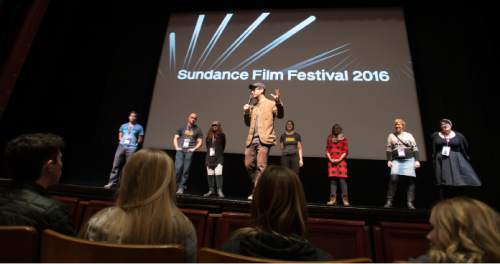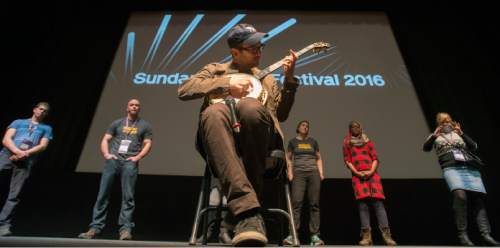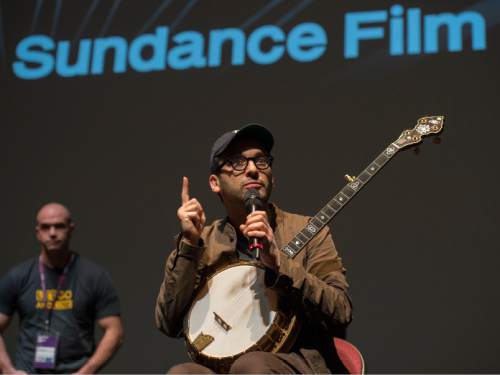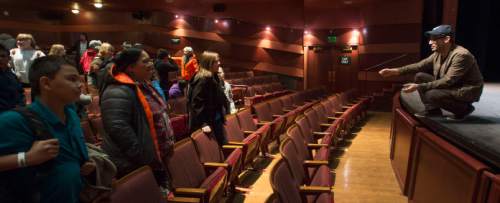This is an archived article that was published on sltrib.com in 2016, and information in the article may be outdated. It is provided only for personal research purposes and may not be reprinted.
Documentary filmmaker Josh Fox made a special stop Friday to screen his latest film for a group of students who were visiting the Rose Wagner Performing Arts Center.
And in "How to Let Go of the World (and Love All the Things Climate Can't Change)," those students from Salt Lake and Utah counties saw families displaced by Hurricane Sandy, shorelines shrinking against rising sea levels, and residents of Beijing hesitant to go outside and breathe polluted air.
After the Sundance Film Festival screening, his signature banjo in hand, Fox explained to the young Utahns that just the night before, air quality in Salt Lake City had reached Beijing levels of particulate matter.
"It hit really close to home how polluted we really are," said Evan Pappis, a senior at Juan Diego Catholic High School.
His classmate Paola Pedroza put a finer point on her feelings.
"I'm scared," she said. "It's so scary."
Each year, the festival hosts a student screening program, presenting films with educational angles to Utah schools.
The program offers a chance for interaction, with most filmmakers personally introducing their films and taking audience questions after the screenings.
Fox, who also directed the "Gasland" documentary series, opens "How to Let Go of the World" with the death of a hemlock tree at his home, the result of an invasive tree-eating pest that has spread in the absence of winters that kill the pests.
"No one is exempt," he said Friday. "No one is outside the range of places climate change will affect."
The film spans six continents, examining the effects of pollution, deforestation, industrialization and changes to weather patterns.
It includes interviews with environmental activists such as Utah's Tim DeChristopher, who joined Fox at the Friday student screening, and Bill McKibben, who suggests in the film that hurricanes and major storms should be given the names of oil and gas companies.
Instead of Hurricane Sandy wreaking havoc on the East Coast, he says, the headlines would be more accurate by saying when Hurricane Exxon makes landfall.
"We've made it a different planet," McKibben says in the film. "We're doing it really fast, and it's really dangerous."
And DeChristopher, who served 21 months in federal prison after disrupting a Bureau of Land Management auction in 2008, discusses his protest in the film while remarking that society may soon be navigating the most intense period of change humanity has ever seen.
"Nobody knows how to solve a climate crisis, because nobody has done it before," he told the students on Friday.
But Fox's film and his remarks to students were not overtly pessimistic. The film highlights several advancements in green and renewable energy, as well as international organizations pushing for action to reduce carbon emissions and mitigate climate change.
He encouraged students to research climate change and get involved, and he ended the presentation by performing a rendition of "The Star-Spangled Banner" on his banjo.
"If a scrappy bar song can become the national anthem, then we're really just making up the United States of America as we go along," he said. "Anything can happen."
Twitter: @bjaminwood













